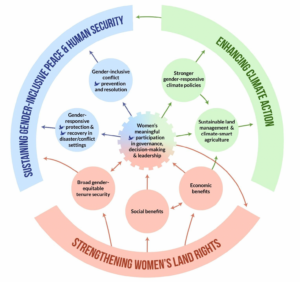Important progress toward gender equality has been made in the past decades, but inequalities linked to gender norms, stereotypes, and the unequal distribution of housework and childcare responsibilities persist. Lifetime events such as marriage and parenthood bring substantial changes in time use among women and men. This paper updates and reinforces the findings of previous studies by analyzing gender differences in the allocation of time among market work and unpaid domestic work. Results from the analysis of time use patterns in 19 countries of different income levels and from various regions suggest that women specialize in unpaid domestic and care work and men specialize in market work. The paper employs propensity score matching to assess the marriage and parenthood “penalty” on time use patterns over the lifecycle. The findings indicate that women of prime working age are the most penalized on a host of measures, including labor market participation, unpaid domestic work, and leisure time. Men are not necessarily penalized for, and sometimes benefit from, marriage or parenthood.
Authors: Eliana Rubiano-Matulevich and Mariana Viollaz
Source: The World Bank




